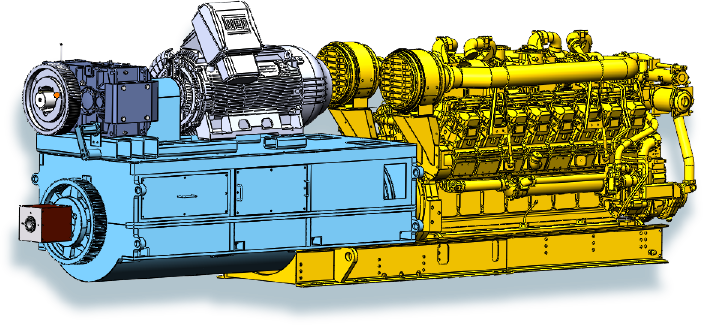Our patented technology can help to provide a 10% reduction in CO2 emissions.

A generator set consists of an internal combustion engine that sends mechanical energy to an alternator, which produces electricity.
For example, in North America, diesel engines can be set to 1800 RPM so that the generator can produce three phases of electricity at 60 Hz.
Genset-Synchro’s patented technology works by inducing a rotation to the generators’ stator to reduce the burden on the diesel engine.
Thus, by integrating TGS technology into a standard generator, the combustion engine speed is reduced to 1500 rpm and the stator rotates in the opposite direction at 300 rpm to generate electricity at 60hz.
The result of this transfer of effort: increased efficiency!
Reduced fuel consumption
Reduced
GHG

On-site
power regulation
A reduction
in vibrations and noise
Reduced maintenance costs
A reduction in icing and glazing effects
A reduction in linear wear of the diesel engine
And a significant increase in lifespan
This patented technology can also be used:
In wind turbines, to simplify gearboxes and completely eliminate the phase shift effect, whilst keeping the voltage constant.
In hydroelectric turbines, where a lower rotational speed allows for a decrease in water flow, which in turn can allow more water to be maintained in the dam as potential energy.
On ships, to help reduce emissions and diesel consumption as well as simplify maintenance.
Whether in the modernization of existing equipment or in the design of new DG’s, Genset-Synchro can help you save the planet, one liter of diesel at a time!



Do you have an energy efficiency project?
Do you want to significantly reduce your CO2 emissions?